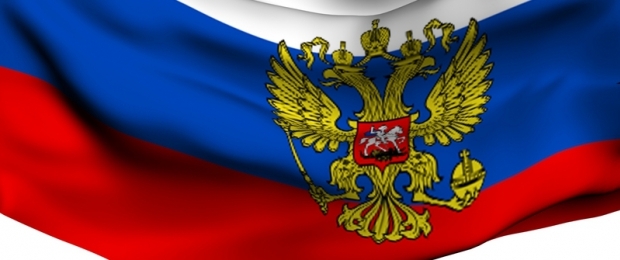
Learning to live with the new Russia
The terrorist attack on the Beslan school in North Ossetia horrified people all over Europe, as in other continents. And yet, despite the wave of sympathy that briefly united Russians and other Europeans, the fallout from Beslan is likely to damage the relationship between Russia and the EU.
That relationship had already suffered strains over the previous two years, as Russia became more authoritarian. While the western media focused on the government's pursuit of the Yukos oil company and its former boss, Mikhail Khodorkovsky, a series of little-noted developments transformed the political climate: television ceased to criticize President Putin and his ministers; suspicion of foreigners grew, partly as a result of government pronouncements; and the security services harassed a number of academics, journalists and people working for NGOs.
The leaders of the larger EU countries, each keen to have his own 'special relationship' with Putin, were unwilling - at least in public - to criticise Russia. Relations between the EU institutions and the Russian government, however, chilled. A few years ago, many Europeans believed that Russia would follow a kind of 'Polish' path: as it gradually became more democratic and capitalist, its ties with Europe would thicken. But, as Katinka Barysch observed in a recent CER report ('The EU and Russia: strategic partners or squabbling neighbours?'), that view was naïve. Russia is very different from Poland. Now many European policymakers argue that while the EU and Russia share a lot of common interests, some of their values are far apart, and that will limit the extent to which Russia can integrate with Europe.
Since the tragedy of Beslan, Russia has become harder to deal with. Russia's response has echoed - in some ways - America's response to September 11th. America became more afraid, more nationalist and more unilateralist. The Bush administration clamped down on civil liberties, showed less respect for international law and made the 'war on terror' the central idea of its foreign policy. Russia has done all these things, but more blatantly. President Putin has said that he will strike at terrorists threatening Russia, wherever they are in the world. Increasingly, Russians blame foreigners for the Chechen problem - whether Arab terrorists (the Kremlin falsely claimed that there were ten Arabs among the Beslan hostagetakers) or western countries that have given asylum to Chechens. The Russian authorities are especially annoyed by the presence of Akhmed Zakayev in London. They claim he is a Chechen terrorist, though they have on several occasions negotiated with him.
Robert Kagan famously observed that Americans are from Mars and Europeans are from Venus. Vladimir Putin now seems to live on the same red planet as George Bush and Ariel Sharon. They think that terrorism can be defeated by military force alone. Europeans accept that force is often required to vanquish terrorism. But they also think that governments can weaken terrorism by undermining its root causes. As far as Chechnya is concerned, that means that Russians should work on winning over the hearts and minds of Chechens, so that the terrorists become isolated within their own communities. And the Europeans think that at some point the Kremlin will have to negotiate with the more moderate Chechen factions.
President Putin is currently in no mood to listen to foreign advice. He has reacted to Beslan by further centralising power: he has abolished elections for regional governors, switched to an entirely partylist electoral system and exerted more influence on the written press. Yet these changes may make it harder for Russia to fight terrorism. For the Russian bureaucracy, security services and armed forces are riddled with corruption and incompetence. In any society, alternative centers of power - such as a free press, independent parliamentarians and autonomous local governments - can make it harder for officials to take bribes, lie or make stupid mistakes. Such checks are rapidly disappearing in Russia. Europe has very little influence on events in Russia.
Any attempt to nudge Russia in the 'right' direction through sanctions would be foolish. Sanctions can occasionally work against a country that is small and weak, but would be counterproductive in Russia's case. The EU and Russia have no choice but to trade - 60 per cent of Russia's energy exports go to the EU - and talk about common concerns such as terrorism, organized crime, visas, pollution and the failing states in their common neighbourhood. The Russians must work out their own political and economic system. But the Europeans should be honest enough to tell the Russian government when they think that its actions are likely to undermine its own stated objectives, and to explain that the speed and scope of its integration with the Union - for example, through the creation of a 'common economic space' - will depend on how Russia evolves.
And whatever the Europeans say, they should say it with one voice. The sight of the various EU leaders competing for Putin's favours has been unedifying. The fundamental interests of Britain, France, Germany and Italy - and the smaller EU countries - are almost identical in Russia. They all want Russia to be a prosperous and liberal democracy that is a stable supplier of energy and resolves the Chechen problem peacefully. If the Europeans can concert their diplomacy, they will find it easier to speak frankly, enjoy a little more leverage and earn more respect from the Russians.
Putin seems to be pursuing two contradictory policies. One is to strengthen the Russian economy by promoting economic liberalism, joining the WTO and increasing foreign investment. The other is to strengthen the state but weaken civil society, press freedom and property rights, while treating foreign countries with more suspicion. Too much emphasis on the second objective will undermine the first.
